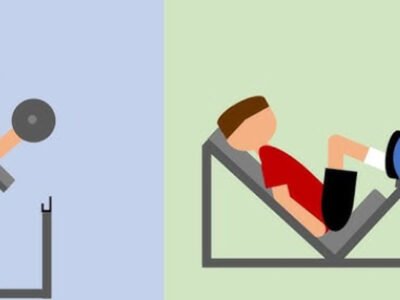In today’s fast-paced world, stress has become an unavoidable part of our lives. While some level of stress can be motivating and help us perform better, chronic and unmanaged stress can take a significant toll on both our mental and physical well-being.
This intricate connection between mental health and physical health is often underestimated, but it is crucial to understand how mental health affects physical health and vice versa.
The Mind-Body Connection
The mind and body are intrinsically linked, and the state of one directly influences the other. This connection is facilitated by a complex network of hormones, neurotransmitters, and immune system responses.
When we experience mental or emotional distress, such as anxiety, depression, or chronic stress, it triggers physiological changes in the body that can contribute to various physical health problems.
How Does Mental Health Affect Physical Health?
Mental health issues can have far-reaching consequences on our physical well-being. Here are some ways in which mental health affects physical health:
Weakened Immune System
Chronic stress and mental health conditions like depression and anxiety can suppress the immune system, making individuals more susceptible to infections, illnesses, and slower healing processes. This is due to the release of stress hormones (like cortisol) that can disrupt the normal functioning of the immune system.
Increased Inflammation
Mental health issues have been linked to increased inflammation in the body, which can contribute to a wide range of physical health problems, including autoimmune disorders, cardiovascular disease, and certain types of cancer. Chronic inflammation can damage tissues and organs over time.
Digestive Issues
The gut and brain have a bidirectional communication pathway known as the gut-brain axis. Mental health problems can disrupt this axis, leading to digestive issues such as irritable bowel syndrome (IBS), ulcers, and other gastrointestinal problems.
Cardiovascular Disease
Stress, anxiety, and depression can increase the risk of developing cardiovascular problems like high blood pressure, heart disease, and stroke. The hormones released during prolonged stress can damage blood vessels, increase inflammation, and contribute to the buildup of plaque in the arteries.
Sleep Disturbances
Mental health issues are often accompanied by sleep disturbances, such as insomnia or poor sleep quality. Lack of quality sleep can further exacerbate mental health problems and contribute to physical health issues like obesity, diabetes, and weakened immunity.
Chronic Pain
There is a strong link between mental health and chronic pain conditions. Depression and anxiety can amplify the perception of pain, and chronic pain can also contribute to the development of mental health problems, creating a vicious cycle.
Substance Abuse
Individuals struggling with mental health issues may turn to substance abuse as a coping mechanism, which can lead to a range of physical health problems, including liver disease, respiratory issues, and increased risk of accidents or injuries.
Can Mental Health Affect Physical Health? The Evidence
Numerous studies have explored the relationship between mental health and physical health, providing compelling evidence that our mental well-being can significantly impact our physical health. For example:
- A study published in the Journal of the American Medical Association (JAMA) found that individuals with depression had an increased risk of developing heart disease, stroke, and other cardiovascular problems.
- Research published in the journal Psychosomatic Medicine showed that chronic stress and anxiety could contribute to the development of autoimmune disorders like rheumatoid arthritis and multiple sclerosis.
- A meta-analysis published in the journal Biological Psychiatry found that individuals with depression had higher levels of inflammation markers, which can increase the risk of various chronic diseases.
Addressing Mental Health for Better Physical Well-being
Given the strong connection between mental health and physical health, it is crucial to prioritize mental well-being to support overall health. Here are some strategies that can help:
- Stress Management: Incorporating stress-reducing activities into your daily routine can have a profound impact on both mental and physical health. Practices like meditation, yoga, deep breathing exercises, and regular physical activity can help manage stress levels and promote relaxation.
- Therapy and Counseling: Seeking professional help from a therapist or counselor can provide valuable tools and techniques to address mental health issues, such as cognitive-behavioral therapy (CBT), which can help reframe negative thought patterns and develop coping strategies.
- Medication (if necessary): In some cases, mental health professionals may recommend medication, such as antidepressants or anti-anxiety medications, to help manage symptoms and improve overall well-being. It is essential to follow the prescribed treatment plan and communicate any concerns or side effects with your healthcare provider.
- Lifestyle Changes: Adopting a healthy lifestyle can contribute significantly to both mental and physical well-being. This includes maintaining a balanced diet, getting regular exercise, practicing good sleep hygiene, and engaging in enjoyable activities or hobbies.
- Social Support: Building a strong support system of family, friends, or support groups can provide a sense of belonging, understanding, and encouragement, which can positively impact mental health and overall well-being.
- Mind-Body Practices: Incorporating mind-body practices like yoga, tai chi, or mindfulness meditation can help reduce stress, improve mood, and promote a sense of overall well-being, benefiting both mental and physical health.
Conclusion
The relationship between mental health and physical health is undeniable, and it is crucial to understand how mental health affects physical health. Chronic stress, anxiety, depression, and other mental health issues can have far-reaching consequences on our physical well-being, including weakened immunity, increased inflammation, cardiovascular problems, digestive issues, and chronic pain.
By prioritizing mental well-being through stress management techniques, therapy, lifestyle changes, and seeking professional support when needed, we can not only improve our mental health but also positively impact our physical health. Remember, taking care of your mental health is an essential step towards achieving overall well-being and living a healthier, more fulfilling life.














Comments